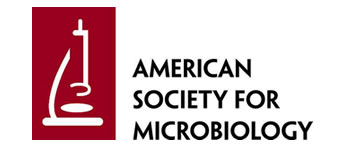American Society for Microbiology
The American Society for Microbiology is the oldest and largest single life science membership organization in the world. Membership has grown from 59 scientists in 1899 to more than 20,000 members today, with more than one third located outside the United States. The members represent 26 disciplines of microbiological specialization plus a division for microbiology educators.
Microbiologists study microbes--Bacteria, Archaea, viruses, rickettsiae, mycoplasma, fungi, algae and protozoa--some of which cause diseases, but many of which contribute to the balance of nature or are otherwise beneficial.
Microbiological research includes infectious diseases, climate change, recombinant DNA technology, alternative methods of energy production and waste recycling, new sources of food, new drug development, and the etiology of sexually transmitted diseases, among other areas. Microbiology is also concerned with environmental problems and industrial processes.
The mission of the ASM is to promote and advance the microbial sciences.
QUBES Project
The mission of the Quantitative Undergraduate Biology Education and Synthesis (QUBES) project is to improve learning opportunities for all students enrolled in undergraduate biology courses by reflecting the centrality of quantitative approaches in modern biology [more info about QUBES]. One of the ways that QUBES promotes quantitative approaches is by partnering with existing projects and communities to facilitate the discovery and use of their materials [more info about partner projects].
ASM / QUBES collaboration
ASM and QUBES have joined forces to raise awareness of their educational materials and meetings.
